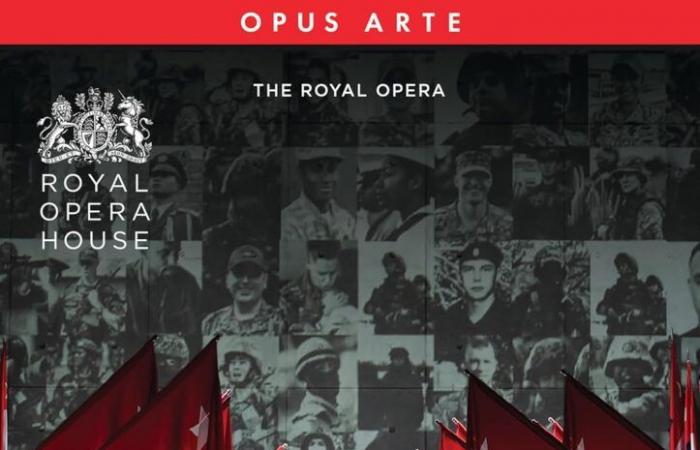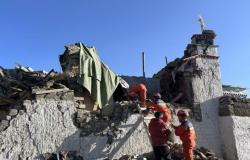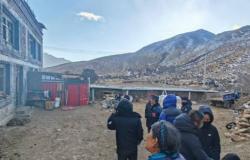More details
Giuseppe Verdi (1813-1901): Aïda, opera in four acts with a libretto by Antonio Ghislanzoni, with a plot by Camille Du Locle and Augsute Mariette. Director: Robert Carsen. Set design: Miriam Buether Costumes: Annemarie Woods. Lights: Robert Carsen and Peter van Praet. Choreography: Rebecca Howell. With: Insung Kim (the King); Agniezska Rehlis (Amneris); Elena Stikhina, soprano (Aida); Francsco Meli, tenor (Radamès); Solomon Howard, bass (Ramfis); Ludovic Tézier, barito (Amonasro); Andrés Presno, tenor (A Messenger); Francesca Chiejna, soprano (High Priestess). Choir (choir director: Benjamin Marquise Gilmore) and Royal Opera House Orchestra, conductor: Sir Antonio Pappano. Director: Peter Jones. 1 Opus Arte Blu-ray. Recorded at the Royal Opera House, London in October 2022. English, French, German, Italian, Japanese, Korean subtitles. 8-page presentation leaflet in English. Duration: 157:00 (opera) 00:10 (bonus)
Work with Art
In 2022, the time was no longer for exoticism for the opera that Verdi created in Cairo in 1874 for the inauguration of the Suez Canal. L’Aida by Robert Carsen for Covent Garden is no longer a tourist brochure.
The current state of the world inspired the Canadian director to make this Aida at the heart of military power, what is more, of a totalitarian state. No pyramids, no temple, no Nile under the stars… The fragrances of the exteriors give way to the sultry interiors. Verdi’s heroes are confined in a concrete building that looks like an anti-atomic shelter with a council room, dining room, community hall, crypt (for the blessing of arms), flame of the unknown soldier, reserve of bombs. Workwear and uniforms are required throughout an icy scenography, determined to condense a few contemporary dictatorships in force or in the making. In this most explicit place, where the prestige of the uniform dictates its law to the sartorial imagination, Carsen easily circumscribes his legendary legibility of a direction of actors with a line: stowaways of a virilism addicted to military salutes , the intimate torments of the main trio are revealed with a beautiful sense of suspense.
Of the two rival heroines, Carsen makes two women equally crushed by power. Both engaging actresses, Elena Stikhina (her powerful and radiant high notes have already faced Salomé with Michieletto) and Agniezska Rehlis (a vocal curve worlds away from the police divas of a bygone era) each produce in their own way intense moments of emotion. After a “Celeste Aida” all in chiaroscuro, Francesco Meli releases the subtle heroism of a Radamès courted by all, caught despite himself in the joint traps of love and glory. With formidable vocal and physical seduction, Soloman Howard’s Ramfis impresses differently under the kepi than under the chasuble. Ludovic Tézier of course makes short work of an Amonasro more in line with tradition. King (Insung Kim), High Priestess (Francesca Chiejna), Messenger (Andrés Presno), and even the Covent Garden choir are impeccable. As usual, Antonio Pappano watches over his cast as lovingly as he does over the famous score, very attached to its intimacy, as well as to its cataclysmic climaxes (the suffocatingly dark Act IV).
The so-called triumph scene does not disappoint, the pompous aesthetic often in force in this occasional opera being advantageously replaced by a very nauseating catalog: cemetery of coffins, bell ringing for the dead (providential trumpets), goose steps, videos of warlike exactions… From the raising of the curtain to its fall, with its impressive final shot freed of any human trace, with its arsenal of silent bombs on the word Pace which concludes the opera, we will classify the message ofAida of Carsen as a “brother in arms” of the one, so poignant, that in 1920, some French communes preferred to engrave on their respective war memorials: Cursed be war.
(Visited 1 times, 1 visits today)
More details
Giuseppe Verdi (1813-1901): Aïda, opera in four acts with a libretto by Antonio Ghislanzoni, with a plot by Camille Du Locle and Augsute Mariette. Director: Robert Carsen. Set design: Miriam Buether Costumes: Annemarie Woods. Lights: Robert Carsen and Peter van Praet. Choreography: Rebecca Howell. With: Insung Kim (the King); Agniezska Rehlis (Amneris); Elena Stikhina, soprano (Aida); Francsco Meli, tenor (Radamès); Solomon Howard, bass (Ramfis); Ludovic Tézier, barito (Amonasro); Andrés Presno, tenor (A Messenger); Francesca Chiejna, soprano (High Priestess). Choir (choir director: Benjamin Marquise Gilmore) and Royal Opera House Orchestra, conductor: Sir Antonio Pappano. Director: Peter Jones. 1 Opus Arte Blu-ray. Recorded at the Royal Opera House, London in October 2022. English, French, German, Italian, Japanese, Korean subtitles. 8-page presentation leaflet in English. Duration: 157:00 (opera) 00:10 (bonus)
Work with Art
Keywords of this article






